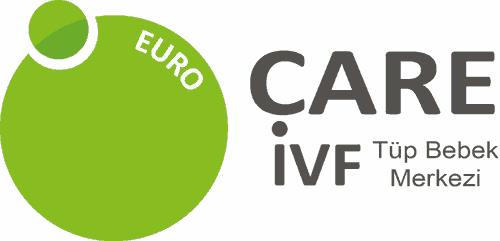
If you are travelling to Cyprus for fertility treatment, you may be wondering how soon you can travel again after the embryo transfer.
Here we’ll talk about the steps and precautions you need to take to ensure a successful procedure.
The big day — here’s what to expect
Embryo transfer is a simple procedure and often doesn’t require pain relief. A doctor will conduct the frozen or fresh embryo transfer with a fine transfer catheter to place the embryos past the cervix into your uterus.
This procedure is guided by an ultrasound, which gives the doctor additional visibility of the perfect placement for the catheter. Embryo transfer is a painless process, although some patients may experience only a mild cramping sensation afterward.
Recommendations following embryo transfer
Once the transfer is complete, you will be given around an hour to lie down on your back and relax. In total, the entire procedure with included rest time only takes 2 to 4 hours.
Some doctors recommend 24-hour bed rest post-procedure, while others recommend relying on light activities to cause blood flow to the uterus in an attempt to increase the chance of pregnancy.
There is no evidence that suggests a perfect post-procedure recommendation, so whether your day entails napping or a short, light walk to relieve stress do what works best for you. There is, however, a consensus that it is not recommended to do high or moderate levels of activity.
Most patients will take the rest of their day off to relax at home before resuming activity the next day. A further prescription of progesterone may be suggested to patients wishing for additional reassurance of a healthy pregnancy start.
Traveling after the transfer
Some patients on a tight time scale do travel home the evening after their transfer, however, we advise waiting until at least the following day before flying home. Flying or any other mode of transportation has not been shown to have any adverse effects on embryo transfer.
For long-haul flights, we advise you to take the normal precautions to prevent the risk of deep vein thrombosis (DVT), such as keeping you well hydrated and exercising your legs from time to time. If your risk of DVT is higher than normal, speak to your GP before you travel.
Steps to take to improve the success rate of the embryo transfer
By the time your embryo transfer is complete as well as during the two-week wait, you should take all necessary steps to improve the chances of successful implantation. This entails making sure you are getting enough sleep and avoiding substances that could risk the pregnancy, such as caffeine, alcohol, and tobacco.
Furthermore, you will be asked to avoid heavy exercise and sexual intercourse, as uterine contractions can hinder the implantation process.
You should also eat a healthy diet consisting of lots of protein, fiber, healthy fats, and fresh produce, such as fruits and vegetables. Avoid unhealthy foods, such as processed sugars, trans fats, and unpasteurized dairy products or raw seafood.
Another essential component to increasing success during this time is taking care of your mental health through emotional support which can come in many forms, whether it’s your partner or family, a therapist, friends, or even an online Instagram group of people going through the same experience.
Post-embryo transfer symptoms
During the two-week period between your embryo transfer and pregnancy test, certain symptoms may arise, including:
- Bloating
- Feeling tired
- Mood swings
- Sore breasts
- Muscles aches or joint pain
- Cramps
- Light spotting
Many of the symptoms above resemble those of menstruation, so it’s best to relax and avoid interpreting them as a potential failure. However, none of these symptoms should be severe, and if this occurs, it’s important to contact our doctor immediately for further assistance.
Taking a pregnancy test after the embryo transfer
Although you may be tempted to take a pregnancy test a couple of days after the embryo transfer, our clinic strongly recommends you wait the typical two-week period first. There is a reason for this — ensuring you get accurate results.
We recommend a two-week wait because taking a pregnancy test too soon after the embryo transfer often produces false results. This happens because the hormone used to determine pregnancy, known as hCG, may not reach a sufficient level in the early stage of your fertility journey. Instead, you’ll be booked for a beta hCG blood test to check if pregnancy has or has not occurred.
If your clinic pregnancy test is positive, congratulations! This means you will be under the care of your ob-gyn in your hometown to further monitor the pregnancy development with ultrasounds and blood tests.
If your test results are negative, we understand how distressing it can feel. Many couples are aware that, depending on the cause of infertility, it is not uncommon for them to undergo multiple transfers before they can finally achieve the pregnancy they dreamed of.
Preparing for an embryo transfer with EuroCARE
Whether you have a health or fertility issue that may affect your egg supply, IVF treatments are an effective way to circumvent those problems and give you the best shot at conception.
Our staff and doctors are ready to guide you through the entire process, discuss low-cost treatment packages, and explain the steps before and after an embryo transfer.
Request a free video consultation with our staff to learn frozen embryo transfer guidelines, costs, and how it can be personalized to your unique journey to parenthood.
